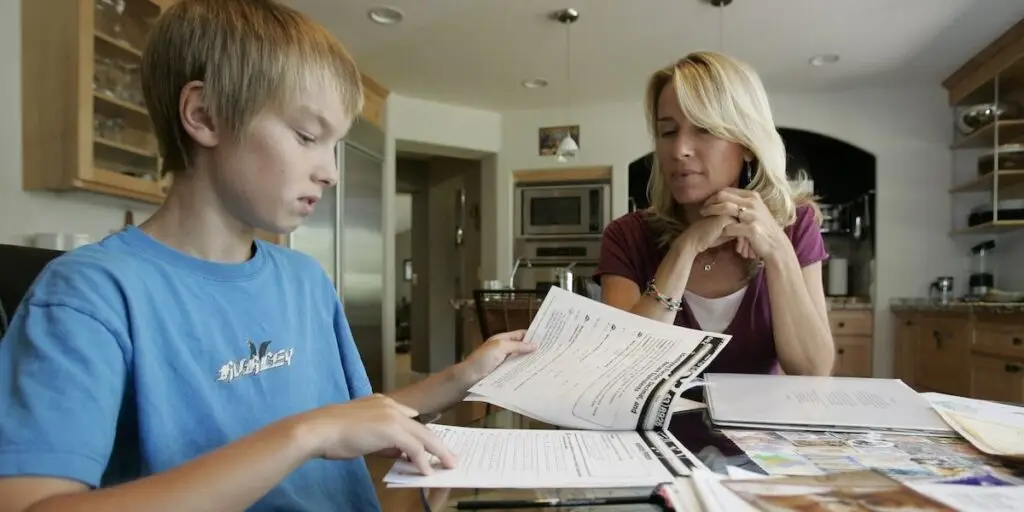As kids begin heading back to school for the new school year, it’s a good reminder that for many parents, homework is the number one source of conflict between them and their kids. When kids won’t do their homework or the quality of work is poor, the sparks begin to fly. In our culture, particularly for mothers, a lot of parental self-worth is wrapped up in how their kids are doing in school. So, as the new school year starts, now is the best time to begin wrestling with how you will approach the hassle of homework in your home.
I once interviewed the acclaimed parenting expert, author, and columnist, John Rosemond about what he believed parents should do regarding the issue of homework, and he outlined his ABCs:
A. All By Myself. Children ought to do their homework in a private, personal area — not a high-traffic or family area like the kitchen. Insisting on a private area for homework tells your children that homework is their responsibility. As we help our kids move from dependence on us to becoming independent — a private area allows them to function and complete tasks by themselves.
B. Back Off. Backing off means refusing to give children help with homework unless absolutely necessary. Although this is often difficult for parents, they need to realize that when children say, “I need help,” it doesn’t actually mean they do. According to Rosemond, when kids ask for help, about 80% of the time, they are looking for mom or dad to solve a problem or bail them out of a situation that has frustrated them. When parents jump in to fix or bail out, they confirm for their children that they indeed were unable to solve the problem themselves. Backing off while supporting and encouraging your kids is the way to go. Even if kids fail, they will learn important life lessons.
C. Call It Quits. Rosemond suggests that parents set a time deadline when homework must be completed for the day, whether or not all assignments have been finished. When deadlines are set and kept, kids will begin to learn to manage their time more effectively.
Although John’s advice might go against some popular thinking today, I like his emphasis on teaching kids to become responsible. These ABCs are nothing more than the approach to homework that most parents used 50 years ago. They emphasize the development of self-discipline, responsibility, and the resourcefulness kids will need to become self-reliant and functioning adults. They seem so simple, but it won’t mean they are easy to use. In fact, for some parents, it will be harder to employ these steps than it will be for kids to adapt to them. Still, our goal is to help our kids become self-reliant, so I believe that using these ABCs will be well worth the effort.



